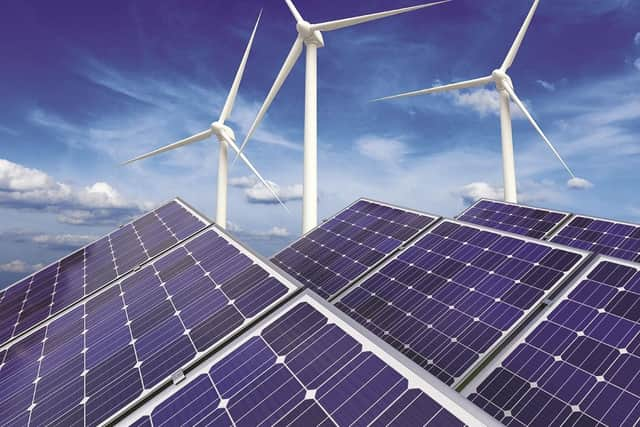NI Energy Strategy in Northern Ireland – An end of year report
and live on Freeview channel 276
This was closely followed by a 22-point action plan setting out what actions will be taken in 2022 by government, with a commitment to report on progress in early 2023.
So, it is an ideal opportunity to mark the DfE report card 12 months on.
Advertisement
Advertisement
The Ulster Farmers’ Union (UFU) flagged up that many barriers including grid and planning, remain unresolved and needed to be addressed if we are to reach 80% of renewables by 2030. Electric cars and heat pumps alone will not get us to these targets and there is no way offshore wind will be online in time for the end of the decade, which leaves us with the land-based sector.


Unfortunately, yet again, we are facing government intransigence and it will be left to industry to push for progress. Already this year, the UFU has raised concerns regarding a lack of urgency from policy makers in relation to the potential of biomethane as a low carbon alternative to fossil fuels when it comes to home heating. But our focus in this commodity watch concerns the lack of debate and direction on future support for adopting renewables.
The UFU are seeking focus on innovative ways of incorporating small scale renewable generation in conjunction with energy storage. The variable nature of renewables like solar and wind power, means that energy can be produced when it is not needed, such as during extended periods of high wind. However, new energy storage technologies can store excess energy to be used at a later point, so the energy can be used rather than wasted. The UFU have long identified that energy storage will further strengthen NI’s energy security by helping unlock the full potential of home-grown renewables.
The deployment of combined solutions ticks many boxes; improving on-farm energy efficiency, reduce energy bills and subsequently, demonstrate a move towards managing carbon which will be an overarching concern in light of the climate change act.
Advertisement
Advertisement
To date, not only has cost been an inhibiting factor, but so too has a lack of desire to engage from government. This is in direct contrast to what is happening in Great Britain (GB), where BEIS (Department for Business Energy Industry Strategy) announced £32.9 million government funding awarded to projects across to develop new energy storage technologies.
This is second phase of a £68 million Longer Duration Energy Storage Demonstration (LODES) competition funded through BEIS’s £1 billion Net Zero Innovation Portfolio, which aims to accelerate the commercialisation of innovative clean energy technologies and processes which could store energy as heat, electricity or as a low-carbon energy carrier like hydrogen, while also encouraging private investment and new green jobs. This builds on the aims set out in the BEIS own Energy Security Strategy earlier this year.
Five projects based across GB will benefit including innovative initiatives such as single liquid flow battery; high-density hydro storage system; and a first-of-its-kind thermal energy storage system. Yet, crucially, there is no NI involvement but also nothing similar being offered by DfE in Belfast.
Russell Smyth from KPMG at the ADBA event in Belfast, flagged up the impact of policy intransigence. €3 billion in biogas support has been earmarked for the ‘island of Ireland’, €2.9 billion has been drawn down in the Republic of Ireland and £100 million in NI.
Advertisement
Advertisement
Whilst it is impossible to speed up energy transition, it is imperative that we have a strong, clear and stable energy policy to incentivise and encourage investment. DfE have cited energy transition as being the biggest boost to economic development in the last 150 years. Yet, if some in industry are to be taken at their word, we are already losing the race and if this muddled projection of energy policy persists, we will lose the race altogether.
In conclusion, if this was a school report at the end of the year, the DfE would be getting a mark of C -.